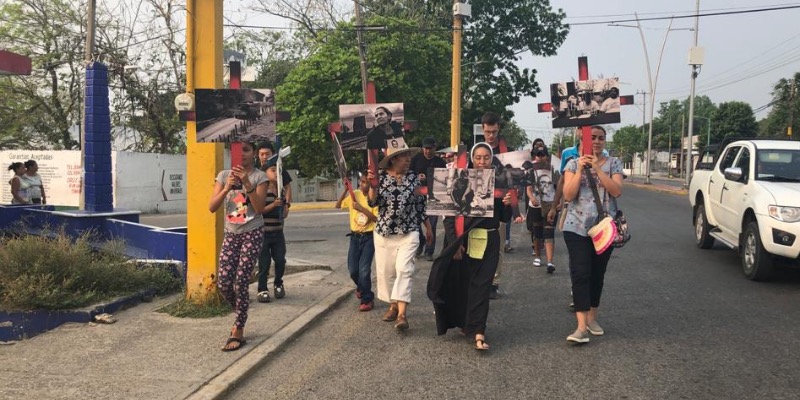Sr. Flor Ramos Villada, HFIC
Migration is a social reality in the history of humanity and inherent to it is the right to development and improvement of living conditions, influenced by multiple factors, such as the following:
- Insufficient and poor employment conditions in In the countries of origin, the salary they receive if they find work is not enough to cover the basic needs of food, clothing, housing, health, studies and in general, to have a decent life.
- Armed conflicts in the countries of origin, often caused by the ambition of political power.
- Expectations of better achievements in the destination countries.
- Family ties in destination countries.
- Asymmetry in the distribution of wealth in the countries of origin. Wealth is concentrated in a few families that enrich themselves at the expense of the exploitation of labor, paying miserable and unworthy wages, as well as the degradation of the resources of nature.
- Family breakdown in the countries of origin.
- Decapitalization of human capital in the countries of origin.
- Hardening of migration policies of destination countries.
- Increase in prejudice and xenophobia in the countries of origin and destination.
Even so, migration brings opportunities of broad benefit for all those who are involved in migratory processes, in their origin, transit and destination, such as:
- Energizing of economies in the destination countries.
- Significant impact of remittances in the countries of origin.
- Growth of the real estate market in the countries of origin.
Most immigration laws tend to view the person who migrates as an “enemy” or potential terrorist. Even many of us who call ourselves Christians also see it as a problem and turn a deaf ear to their voice of help, or else , we show indifference to their needs.
Pope Francis says that every Christian is called to recognize in the faces of migrants, the face of Christ, hungry, thirsty, naked, sick, a stranger and imprisoned, “who challenges us.” If we recognize him, says the Pope, we will be the ones who will be grateful for having known, loved and served him.
“The internally displaced offer us this opportunity to meet the Lord, even if it is difficult for our eyes to recognize him: with torn clothing, dirty feet, deformed face, bruised body, unable to speak our language” (Pope Francis, Homily, February 15, 2019).
Why do we see migrants as a problem, as enemies, as usurpers of jobs, as a source of contagion, as unpleasant people? What do we need as people to feel love for them and to see in each migrant the face of Jesus Christ? What do we need to make love manifest beyond borders? Let us remember the words of Saint Francis of Assisi: “For when I was in sin, it seemed too bitter for me to see lepers. And the Lord Himself led me among them and I showed mercy to them. And when I left them, what had seemed bitter to me was changed into sweetness of mind and body.”
For Francis, the fact of having reached the encounter with Christ through the poor, illuminated his total conception of the incarnation and the following of “the poor and crucified Christ.”
The path that Saint Francis of Assisi followed was an authentic way of conversion: “The starting from sin and being introduced into the mystery of the love of the Creator, of whom feels called to initiate a communication with Him in Christ. The newly converted, in fact, through the action of divine grace, undertakes a spiritual path by which, already participating by faith in the mystery of death and resurrection, passes from the old man to the new perfect man in Christ ”( Vatican II: Ad gentes 13).
Therefore, we need a true conversion, really knowing Jesus Christ, meeting him in silence and listening to the promptings of the Holy Spirit, only in this way will we stop being indifferent to the suffering of our brothers and sisters, we will abandon our passivity before migration and we will be the voice to demand greater commitment and sensitivity, a treatment worthy of brothers and fairer laws that protect them, allow them to achieve their dreams; as well as proposing spaces to integrate knowledge and joint care approaches to migrants, particularly those who are most vulnerable, raise awareness and involve communities of origin, transit and destination.
Through art, collective creation, debate and public spaces for expression, it is possible to generate a broad reflection on migration issues, helping to place on local and national agendas the need to reduce the risks associated with irregular migration, as well as provide clear and secure information on the rights of migrants and available assistance services. Migration is a right! The situation undoubtedly demands attention and approach strategies that ensure above all the dignity and respect for human rights of those who move from one place to another, promoting options for safe, regular and orderly migration. The problem of migration is a problem of justice and education, to be different is not to be inferior, remember that all the great cultures were born from forms of miscegenation.








